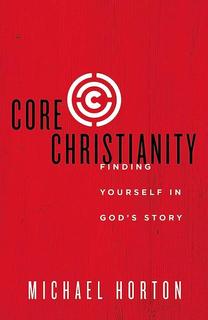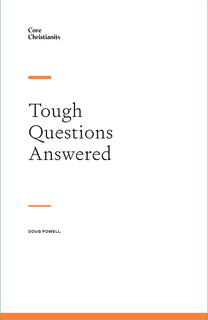Much loved and often quoted, Romans 8:28 proclaims, “We know that for those who love God all things work together for good.” It’s not hard to see why this verse resonates with many Christians. This promise brings comfort in the midst of trials, hope in the face of evil, and joy in our deepest pain. Yet it’s often hard to believe God works all things together for good. Sometimes the sheer magnitude of sin, suffering, and evil seems insurmountable—even for God. Is it really possible that God can work together all things for good? How can God actually use all things for our good? Such a huge question deserves an equally huge answer.
All Things
God is in charge of everything. Ephesians 1:11 tells us that God “works all things according to the counsel of his will.” Everything falls under his sovereign power. God alone is supreme; he needs no help or permission to do as he pleases. This doesn’t mean that God is responsible for evil. God made humanity with a will that was free to obey or disobey him. By permitting Adam and Eve to sin of their own volition, God allowed evil to enter the world. From the moment of Adam and Eve’s sin onwards, human history is the story of God using everything that happens and every choice that people make, good or evil, to show and share his glory. Remarkably, it’s not just the good, but also the evil that God uses for his glory. God does this in the Old Testament story of Joseph.
Joseph: Slave to Savior
Joseph was Jacob’s favorite son—and he knew it. Pretentious and spoiled, he told his ten older brothers how he’d dreamed they would one day bow to him. Behavior like this, unsurprisingly, didn’t endear him to his siblings. They sold him into slavery and faked his death. From this lowly state Joseph rose, only to fall again and be cast into prison. Yet it was in prison that he interpreted the dream of Pharaoh’s cupbearer, who in turn recommended him to Pharaoh when Pharaoh had a disturbing dream. Pharaoh’s dream revealed that seven years of plenty would be followed by seven years of famine. Because he could interpret the dream, Pharaoh appointed Joseph to oversee the collection and storage of grain for the next seven years. Thus, when famine struck, Egypt was well-stocked with food and Joseph oversaw its distribution.
The famine was widespread. Back in Canaan, Joseph’s family was struggling. So, Jacob sent his sons to the only place that had food: Egypt. Joseph’s brothers didn’t recognize Joseph when they met him. After putting them through several tests, Joseph revealed his identity. His brothers were speechless, but Joseph responded with these reassuring words:
And now do not be distressed or angry with yourselves because you sold me here, for God sent me before you to preserve life … God sent me before you to preserve for you a remnant on earth, and to keep alive for you many survivors. So it was not you who sent me here, but God (Gen. 45:5–8).
Joseph’s brothers made him a slave, but through their evil act, God made Joseph a savior. As Joseph told his brothers, “(Y)ou meant evil against me, but God meant it for good, to bring it about that many people should be kept alive, as they are today” (Gen. 50:20). How does God use all things for our good? He takes even the sinful things that humanity does and uses them to bring salvation. Joseph’s story is a pattern of the ultimate and greatest way that God works all things, including evil, for our good.
The Greater Joseph
The life of Joseph points us to the life, death, and resurrection of Jesus Christ. Christ descended from heaven and took on the form of a servant by becoming truly human. He came not to be served, but to serve. Jesus perfectly obeyed God all his life, yet he was unjustly charged and convicted by the Jewish religious courts and then condemned by Rome to be crucified like a common criminal. God incarnate was rejected and killed by his very own people. He let those whom he’d created by the power of his will pierce his hands and feet with nails and hang him on a cross to die. Like Joseph, who was cast into prison despite his innocence, the greater Joseph was punished for the sins of humanity, despite his perfection. Through the evil of the crucifixion, God brought forgiveness to many. The remnant was saved—not from a famine, but from eternal damnation.
This is how God works. Salvation comes through the cross. If God can bring eternal life to people of all nations through the death of his Son, then we know he can use all things for our good. How does he do this? Through the cross. Paul puts it this way:
In him we have redemption through his blood, the forgiveness of our trespasses, according to the riches of his grace, which he lavished upon us, in all wisdom and insight making known to us the mystery of his will, according to his purpose, which he set forth in Christ as a plan for the fullness of time, to unite all things in him, things in heaven and things on earth. (Eph. 1:7-10)
We don’t know the exact details of how God works every single thing together for our good, but we know he can, he does, and he will. He’s proven he can through what was accomplished by Christ on the cross. He does this in our lives as we’re redeemed and sanctified by the Holy Spirit. He will do this at the consummation of all history, as the new heavens and new earth are ushered in, and Christ wipes away every tear from our eyes once and for all.
What Does the Bible Say?
- Romans 8:18–39
- Ephesians 1:1–14
- The Story of Joseph: Genesis 37–50
Recommended Resources
- Joseph: A Story of Love, Hate, Slavery, Power, and Forgiveness, by John Lennox
- All Things For Good, by Thomas Watson










